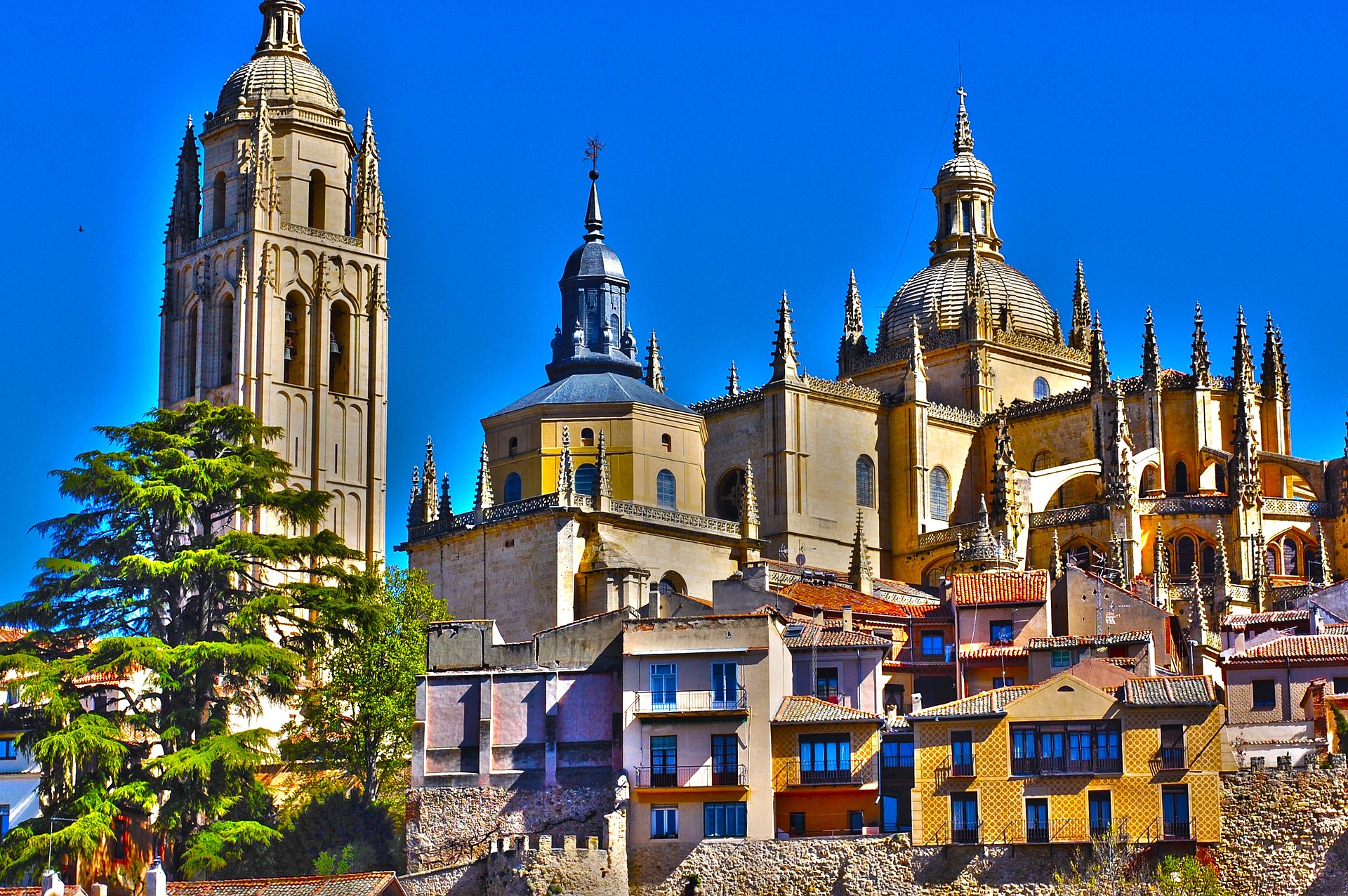Looking for a destination that is picturesque but also tourist-free, well look no further, here is a list of the top ten hidden destinations to visit on your next holiday.
El Rocío, Andalucía
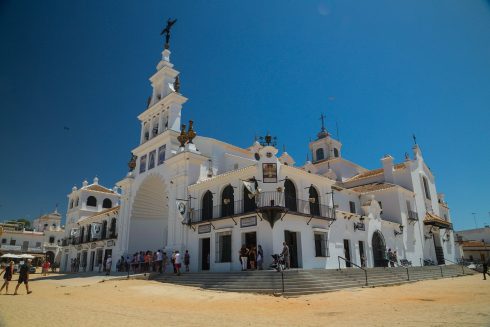
This small town feels very apart from the outside world and is only half an hour away from the Andalucian capital, Sevilla. As your feet touch the sand-covered streets you are immediately transported back in time, carts are more commonplace than cars and horses are seen tied to wooden posts outside stone houses.
The focal point of the town is its enormous church, Nuestra Señora del Rocío, its interior is adorned with gold decorations contrasting with it’s bright white walls.
El Rocío can also be described as one of the ‘gateway towns’ to Doñana National Park, a UNESCO World Heritage Site which offers a variety of ecosystems from beaches, to pine groves and cliffs.
This is also an amazing place for bird watching as it is also one of Europe’s most treasured wetlands.
Segovia, Castilla y Leon
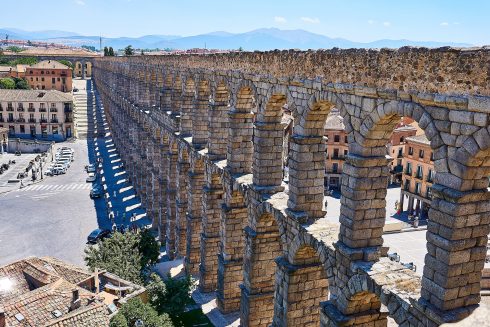
In the region of Castilla and Leon is Segovia. Known for its history, gastronomy and picturesque views this destination has it all and it is just one hour away from Madrid.
In 1985 the city centre and aqueduct was declared a World Heritage site by UNESCO and it’s clear to see why.
Visitors can admire the roman aqueducts built here in the first century AD that are still used to deliver drinking water to this day.
The city is also home to the Alcazar, a medieval fortress that provided inspiration for Walt Disney’s Cinderella castle and its cathedral which was the last modern gothic church built in Spain.
Make sure you try local specialities such as the mouthwatering suckling pig, it will not disappoint.
Cardona, Catalunya
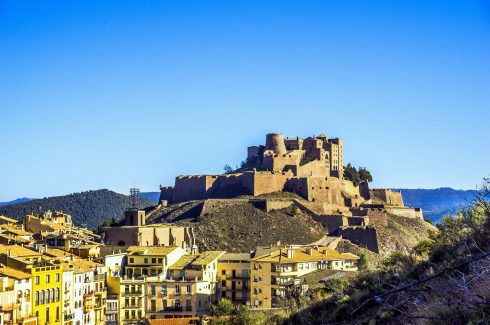
Only an hour and a half drive from Barcelona, this charming medieval village in Catalunya is worth visiting. A castle on a hill overlooks the charming walled city. Visitors can also enjoy the unique experience of sleeping in a castle which has now become part of the Paradores hotel chain.
However there are also daily guided tours if you don’t have time or the budget for an overnight stay.
This village is not only famous for its rich history but also for its salt mountain.
The mountain was created thousands of years ago when this area of Catalunya was covered in seawater.
When the tectonic plates moved to create the Pyrenees mountains, the dried salt was pushed up to create something truly spectacular. Measuring 86m, the mountain’s height is constantly changing due to rain and erosion.
Salt deposits go as far down as 2km below the ground and have been mined since the 10th century.
El Burgo de Osma, Castilla y Leon
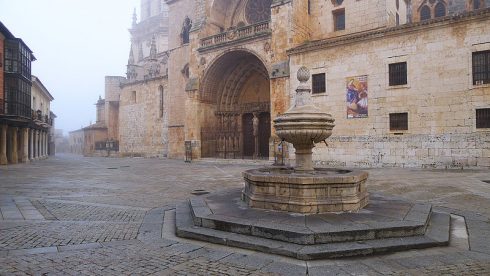
Sandwiched between Zaragoza and Valladolid in the province of Soria is the town of El Burgo de Osma.
This historical treasure trove is ideal for history buffs or those who only want to be surrounded by locals.
This municipality is home to Roman ruins, a medieval fortress, excellently preserved city walls and a stunning cathedral.
What makes it even better is its pedestrianised historical centre meaning visitors can stroll the streets and grab a bite to eat without the noise and bustle of cars.
Italica, Andalucia
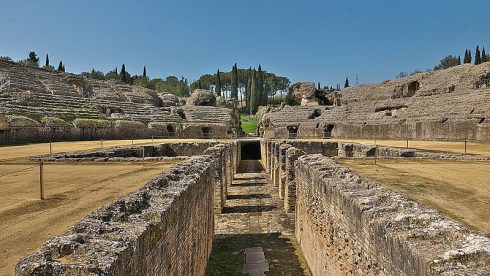
In spitting distance of Seville lies Italica. This Italic settlement was the birthplace of three Roman emperors – Trajan, Hadrian, and possibly Theodosius.
As the first Roman settlement in Spain this stunning location offers many historical delights. Explorers can marvel at the 25,000-seater amphitheatre, which was one of the largest in the Roman Empire.
There is also the temple of Emperor Trajan,the Traianeum, the Roman baths and the sophisticated aqueduct. As there has been no modern city covering Italica there are still many well preserved houses, five of which belonging to rich families that have beautiful colourful mosaics. Italica’s allure was also recognised by Game of Thrones as it was the film set for the seventh season in 2016.
La Alberca, Castilla y Leon
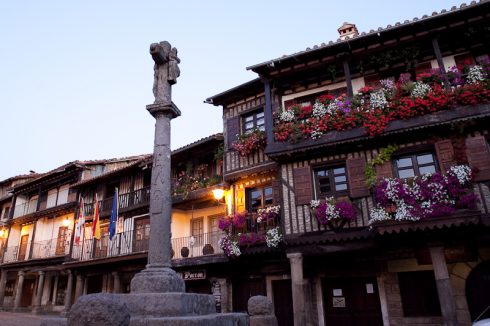
With its timber framed buildings featuring floral adornments and white painted facades this municipality looks like you’re stepping into Bavaria. Since 1940 the town has been recognised as a Historic-Artistic monument and was the first town in Spain to be given this status.
This is a perfect destination to escape the madding crowd and to glimpse at a town wrapped up in tradition and religion. Make sure to visit the historical Plaza Mayor where you’ll be sure to be surrounded by locals, or try some delicious tapas at one of the village’s ancient tapas bars.
La Alberca also hosts many interesting religious festivals throughout the year including the fiesta in honour of Our Lady of the Assumption held on August 15th. These festivities are marked as National Interest and tourists can witness beautiful vibrant costumes along with elements of traditional folklore.
Llafranc, Catalunya
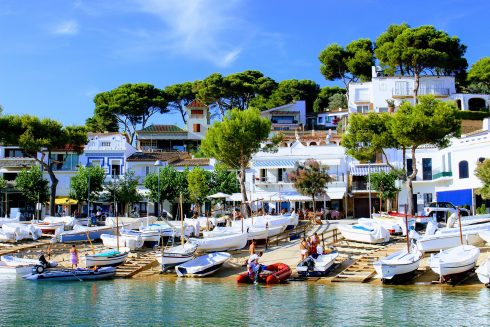
In north-eastern Catalunya along the Costa Brava lies Llafranc, an idyllic seaside town which is perfect for families and has a calm but buzzy atmosphere.
As well as taking a dip in the crystalline waters, visitors can enjoy the plethora of seafood restaurants and local markets here.
For those who favour activities, explore the archaeological ruins or visit the San Sebastiàn Lighthouse. Built in the 15th-century it has stunning views out to sea.
The town is also known for its famous visitors like Ernest Hemingway and Salvador Dali who frequented Llafranc.
Setenil de las bodegas, Andalucia
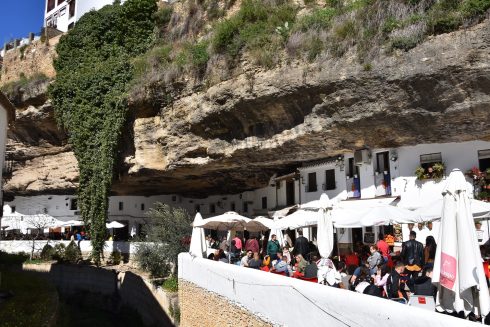
Setenil de las Bodegas is a white village in Andalucia that has been sculpted into the rocks, in the narrow canyon carved by the river Trejo.
This settlement is particularly unique as it was crafted from the inside of a cave network unlike the others built by the Moors which sit atop hills. Visitors can spend the night in one of the caves and visit the cave restaurants that are among some of the best in the region.
For meat eaters this town is well known for its chorizo and cured meats, it also produces delicious pastries for those with a sweet tooth.
Some of the other attractions are the Nazari Castle, which watches over the village. Built in the 12th century the castle used to have forty towers but now only one remains.
Zumaia, Basque Country
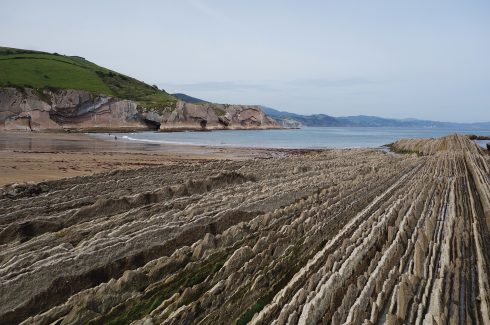
This small town in the Basque Country is the epicentre of flysch stones, a natural phenomenon that is sure to delight the eyes of geologists and tourists alike.
In fact some may recognise it as one of the locations in the seventh season of Game of Thrones. Covering 4,300 hectares of land and sea, it is one of the most important geological sanctuaries in the world.
This is a great destination for those who enjoy hiking as some of the best views can be accessed from the flysch walking trails. Zumaia also offers many art exhibits with works from Goya, El Greco and Rivera to name but a few.
The town also has a longstanding tradition of fishing octopus, so be sure to sample some scrumptious bites while you´re there.
Trujillo, Extremadura
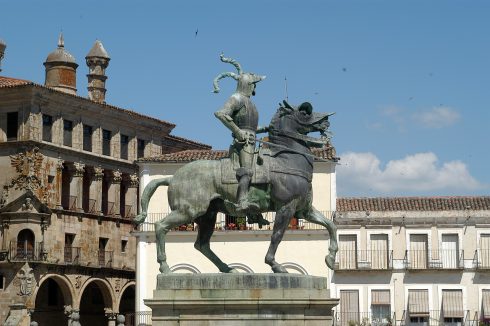
Delve into the western province of Caceres where you will happen upon the medieval town of Trujillo, in the community of Extremadura.
This town is a cornucopia of medieval and renaissance architecture. In the plaza mayor resides a bronze statue of conquistador Pizarro and visitors are surrounded by medieval buildings, as well as historic churches.
Notable places include the Alcazaba, a medieval moorish castle and renaissance palaces such as the Palace of the Marquises of the Conquista. Visit on the 1st of May to catch a whiff of Trujillo’s national cheese fair, the most famous cheese competition in Spain.
READ MORE:
- 10 of the most beautiful walled towns and cities to visit in Spain
- Six wine-growing regions in Spain to enjoy the grape harvest this autumn
- TRAVEL: 12 beautiful places to see the autumn colours in Spain
Click here to read more Olive Press Travel News from The Olive Press.

